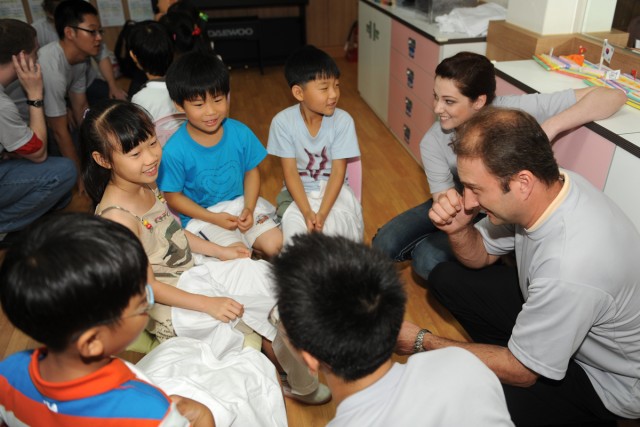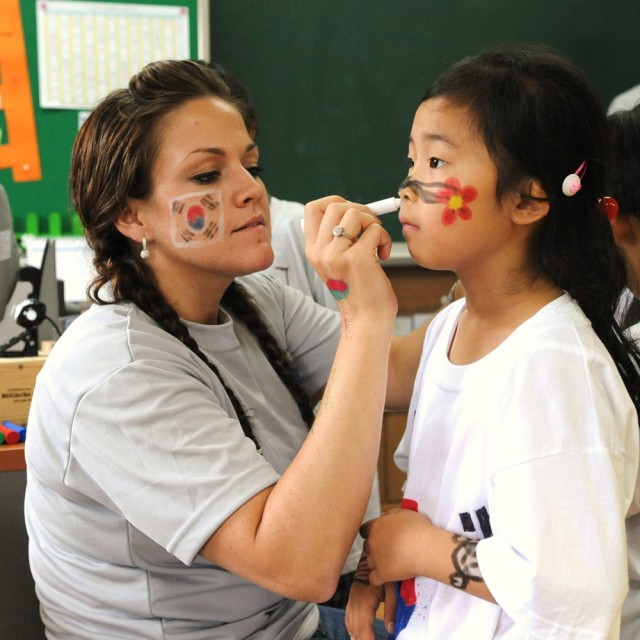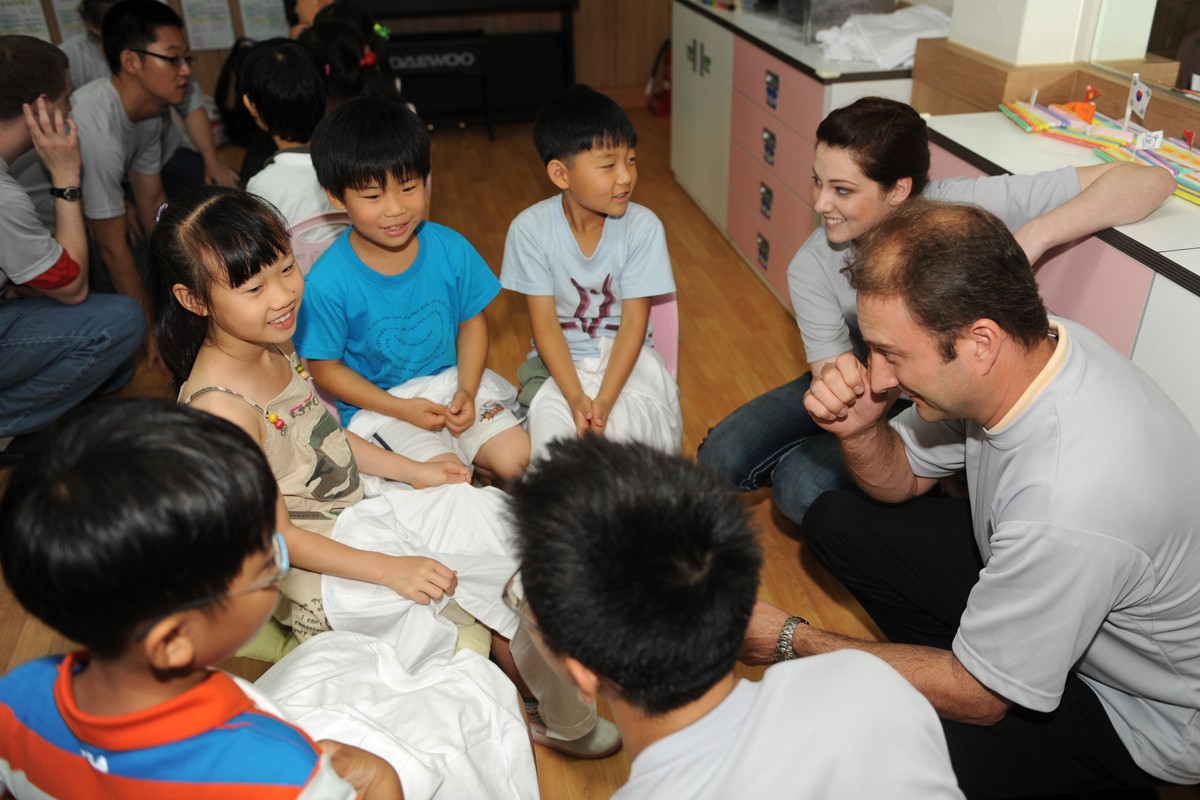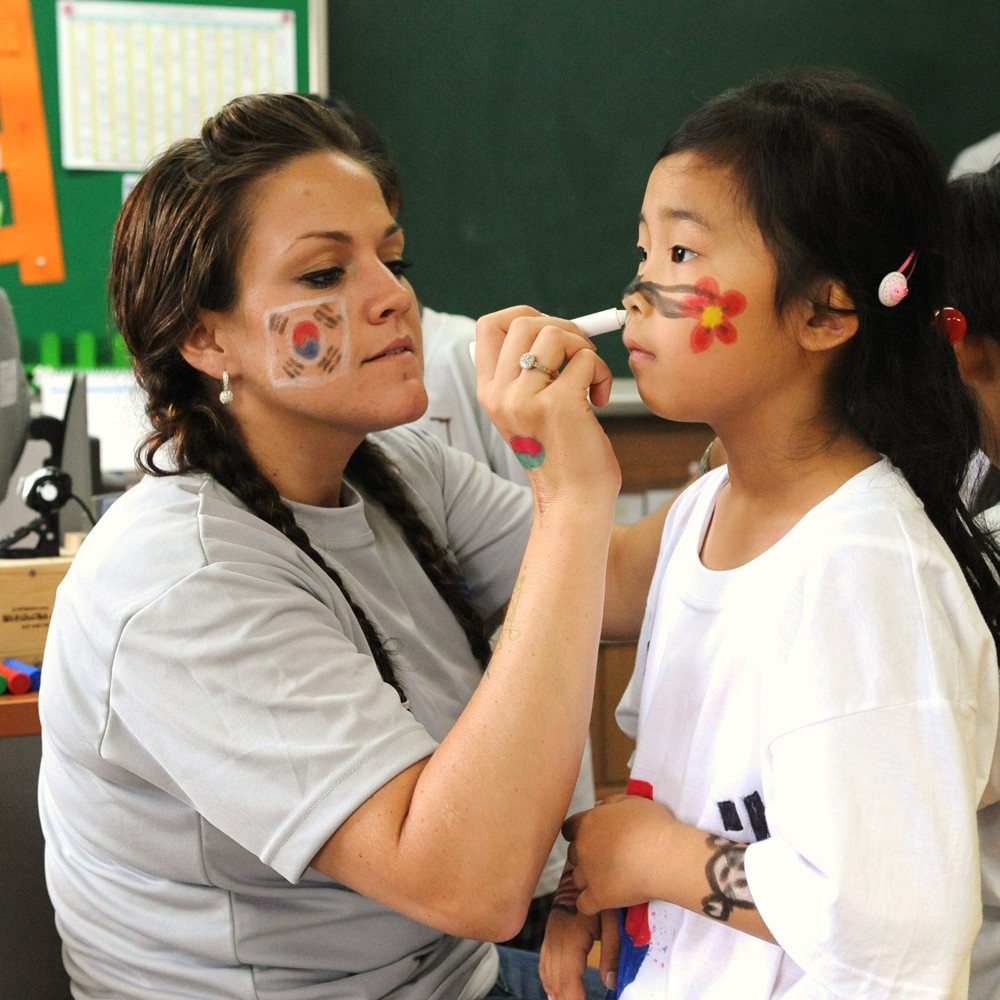SUBAEK-RI, Gangwon Province, South Korea - U.S. Soldiers and military retireees volunteered to hold an English Camp at Subaek Elementary School here July 3.
Sponsored by the Dragon Hill Chapter of the Noncommissioned Officer Association, the camp was run by 35 volunteers.
The group went to the elementary school to teach English and introduce American culture to the children.
Along with English lessons, the camp included activities such as bingo and coloring t-shirts.
Korean and American volunteers divided into three groups, taking part in teaching kindergarteners, 1-3 graders and 4-6 graders.
Parents and local residents also participated in the event to observe the children bonding with the Soldiers.
Many of their students had their first opportunity to experience American culture and to talk with an American Soldier.
Retired Sgt. Maj. Joseph Terry, chairman of the Dragon Hill Chapter, said they picked the rural location because the children in South Korea's northeastern Gangwon Province would most likely have had little exposure to foreign culture.
"Normally we would go somewhere nearby Seoul or the Yongsan area," said Terry. "But we wanted to go out and give the opportunity for the children outside the city that don't get a lot of exposure to foreigners."
Choi Hae-won, the principal of the school, said the children connected with the American Soldiers after the first brief session.
"The children are having so much fun that some of their faces turned red," said Choi. "I appreciate all the volunteers coming here on the weekend and infusing such positive energy in our children."
Choi also said that interacting with U.S. Soldiers was a good experience for the students.
"In correlation with the 60th anniversary of the Korean War, this is also a good opportunity for the students to meet someone from our allied nation and get to know them," she said.
Master Sgt. Thomas Weiss, vice chairman of the Dragon Hill Chapter, says this is just one of the ways to give back to the community.
Weiss also said that working together with Korean counterparts in these types of community projects can further strengthen the ROK-U.S. Alliance.
"This is what we hope to keep doing for many years because it's not only good for the community but also good for the alliance," said Weiss. "We hope this could play a part in building a good impression among the Korean communities."




Social Sharing